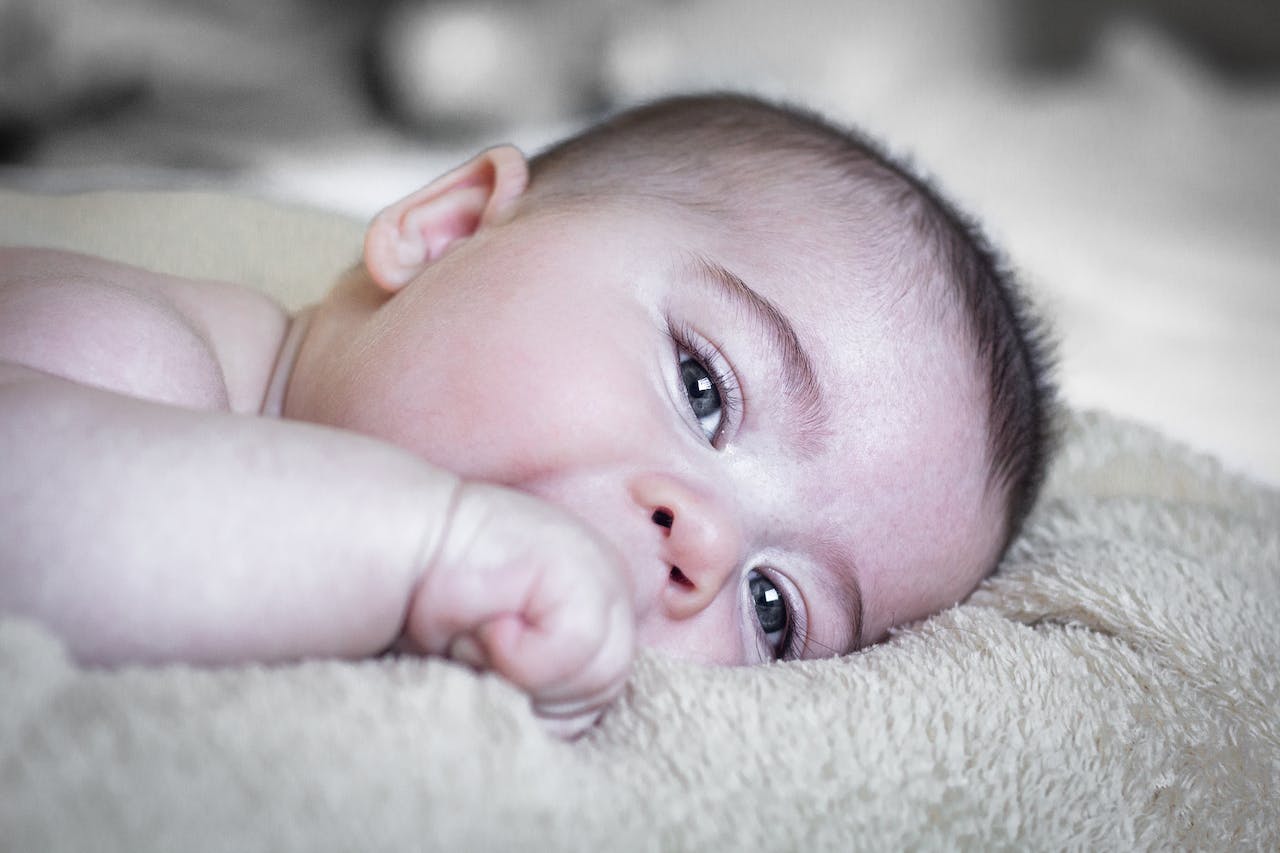
How do parents affect the development of children – and what simple steps can parents take to build strong bonds with their kids?
Before our children are even born, they begin to shape our lives in countless ways.
From profound changes in sleep, to stepping away from careers, to experiencing new depths of love and emotions we didn’t know were possible – children impact our lives in a very big way from day one.
In the same way, parents have an enormous impact on the development of their children.
In fact, our psychological, physical and emotional wellbeing as parents significantly impacts the development of our children beginning in infancy, influencing their capacity to mature into healthy, well-adjusted adults, right into their senior years.
Nearly all parents have the intention, as their top priority, the wellbeing of their children; but sometimes life is really hard which makes it difficult to be the parent you want to be.
At Care for Women we believe in surrounding a mother with the help and support she needs to maintain her mental and emotional well-being so that she has the capacity to meet the needs of her children, right from day one.
Because believe it or not, the first weeks of a baby’s life can have lifelong echoes.
In this blog, learn about:
- How parents affect child development
- Early childhood experiences
- Adverse childhood experiences
- 5 simple ways to build bonds with your children
- The myth of “easy” parenting and the importance of mom friends postpartum

The effect parents can have on child development
Child development refers to the physical, cognitive, social, and emotional skills that children develop through to their adolescent years.
Children develop best in environments where they feel seen, safe, supported – and the foundation of being raised in such an environment leads to better long-term outcomes of success in adults.
Core ingredients of healthy child development include:
- Safe and responsive parents
- Positive engaging interactions (in family life, be that work or play)
- Adequate sleep, nutrition, and exercise habits
- Age appropriate challenges to build competency and a sense of agency
- Structure, routine, and clear limits are also important for child development.
The benefits of emotionally healthy parents on child development
Children raised in safe and nurturing homes with healthy relationships with their parents tend to grow up to have:
- Better social, emotional and behavioural competence
- Better physical health and overall wellness
- Better cognitive function
On the other hand, adverse childhood experiences can lead to long-term health consequences in children as they grow up, including:
- Chronic health problems
- Mental illness
- Substance use issues
- And more…
Kate Middleton – the Princess of Wales – is a prominent figure in child development advocacy and has spoken at length about the importance of the early years in children’s lives.
She, too, believes that motherhood wasn’t meant to be done alone – and that there really is truth behind the adage “healthy parents, healthy children.” Check out this quote from her press coverage in Vanity Fair:
“It really does take a village … it is not just about supporting children in the earliest years of their lives. It is also about building healthy communities in which they can grow. Because the healthy development of our children relies on healthy adults.”
Kate Middleton
As parents, we have a significant influence over our children’s mental, emotional and physical health.

Early childhood experiences
Children can build strong connections with just one supportive and responsive caregiver.
A strong connection with such a caregiver can lead to the development of healthy attachment – a huge asset for any child growing up.
Strong attachment with just one stable caregiver helps children develop increased resilience and feel safe, even when living in an environment that may not be ideal.
Attachment is important because it lays the foundation for healthy emotional, psychological, and social development.
Beginning in infancy, attachment to caregivers (usually parents) provides emotional security and a sense of safety.
Children who form secure attachments are more likely to:
- explore their environment and develop a sense of confidence,
- better regulate their emotions,
- have better social skills
- and the ability to form healthy relationships.
Adults who have secure attachments often have more satisfying and fulfilling relationships, are better at communicating, resolving conflicts, and maintaining long-term relationships, are more adaptable and better equipped to handle setbacks and life changes.
Adverse childhood experiences and the impact on child development
Adverse childhood experiences (ACEs) are potentially traumatic experiences that occur between the ages of 0-17 years. These may include:
- Experiencing violence, abuse or neglect
- Witnessing violence in the home or community
- Having a family member attempt or die by suicide
- Substance abuse problems in caregivers
- Mental health problems in caregivers
- Instability in the household due to divorce, separation, imprisonment, hospitalization
These experiences can lead to toxic stress – the body’s response to ongoing distress or stress, often when they don’t get enough adult support.
It is important to be aware of the effects that ACEs can have on children as they develop – not to increase your guilt, but to raise awareness in areas where you can have control and influence over your child’s experiences.
It’s not that we can (nor should) shelter our children from hardship, but rather we can learn how to shoulder their pain together with them and help them make sense of the pain so they don’t feel stuck and lost in the overwhelm.
Life is filled with hardship and suffering, but research reveals that when children have at least 1 supportive adult they can rely on where they feel seen and heard, it is a big protective factor for the child to help them overcome the adversity.
Just like you were a sponge soaking up the world around you when you were a child, so is your child. Be sure to get the support you need, as early as possible, so that you and your child can enjoy your relationship during these early years.
Bolstering maternal health in the first weeks postpartum
The first few weeks postpartum are critical for new moms in terms of physical recovery, emotional stability, and establishing a community of support.
You have just been through a major physical, emotional and mental transformation. Your body is sore, with intense emotions – hormones are a roller coaster reshaping your perception of life. Hopefully, you are surrounded by well intentioned people who want to hold and snuggle your precious new baby. Yet, they may not be prepared to help you adjust to life, and heal and recover.
Regardless of whether you are a mother for the first or fifth time, each experience is new and hugely transformative.
Many medical professionals will say that two weeks of baby blues is “normal” – but that persistent feelings of sadness beyond that could be an early sign of postpartum depression.
Postpartum depression and child development
Maternal mental health plays an enormous role in the positive or negative outcomes for children and adolescents – even into the adult years.
Depression is one of the most commonly experienced mental health issues – it involves chemical imbalances in the brain and impacts a person’s state of mind. Depression for women in their childbearing years can have long-lasting impacts on child health and development:
- According to the Encyclopedia of Early Childhood Development, the children of depressed mothers are more likely to face challenges with cognitive, physical, social and academic functioning throughout childhood and adolescence.
- The children of mothers who struggled with postpartum depression are also more likely to have depression, anxiety, and conduct disorders themselves, as children and later in life.
- Children of depressed mothers may be more likely to have worse physical health than children whose parents were not depressed during their childhood years.
Postpartum depression can cause extreme sadness and despair, as well as high and low moods, shame, guilt, frequent crying, fatigue, and anxiety.
I want to be absolutely clear here: I am sharing this information not to make any mother, or parent or caregiver, feel burdened or stressed. Again, depression is an incredibly prevalent mental health disorder often driven by chemical imbalances in the brain, affecting one’s overall mental state
My goal is to help everyone understand how vital it is to support new moms, so that new mothers receive the necessary physical and emotional help to ensure they have to make the initial postpartum weeks more manageable and less stressful.

How have ACEs impacted my parenting?
If right now you’re thinking that your own experiences as a child may be contributing to your struggles with parenting today, you might be right – and you’re not alone.
Adverse childhood experiences, like abuse, neglect and trauma, have an impact on the brain, and how your body responds to stress.
A high ACEs score also correlates with a higher risk of developing depression or anxiety and other serious struggles as an adult.
You can check your ACE score here. This may help you to understand yourself and where you may be struggling in your parenting journey (and why).
One big factor of why you might be struggling as a parent is that it is difficult to provide experiences such as, nurture, structure or support if you didn’t receive those things yourself as a child. It can be difficult to give something you didn’t receive yourself as a child.
You may not have a (strong) framework to fall on. And because parenting is stressful, our brain prefers to resort to familiar coping styles when we are stressed, which can mean that we end up parenting in ways that we don’t want to parent.
There is no perfect parent, we all have wobbly and vulnerable areas; being aware of where you need for support isn’t a sign of weakness but rather a sign of awareness and strength. If you think you may be struggling with depression, anxiety, or other issues be sure to speak with your family doctor or a trusted mental health professional about therapy or medication to get the tailored support you deserve.
In the meantime, here’s some good news.
Research indicates that peer support groups decrease the symptoms of depression – which is why it’s so important to have a support system already in place before you have your baby, whenever possible!
Social support is absolutely critical when you are a new mom, because it helps with reducing the risk of postpartum depression and anxiety too.
However, support systems aren’t just about combating postpartum depression and anxiety, though they do play a pivotal role in that.
They also serve as a beacon of strength for new mothers as they navigate the uncharted waters of parenthood. The reassurance of having someone to confide in during moments of struggle can work wonders in managing the pangs of loneliness, depression, and anxiety that can sometimes accompany this life-changing journey.
Cultivating strong, healthy relationships with your children can equally contribute to your own well-being as a parent. These relationships act as a two-way street, fostering not only your children’s development but also your own self-confidence and overall happiness.
So, without further delay – here are some of the best ways to build strong bonds with your children. (Bonus: you don’t even have to leave the house for these)

5 simple ways to build bonds with your children
So – we know now that parents affect child development, and that having a strong, healthy connection with our children can help them thrive.
But how do we build those bonds?
The good thing is – kids are pretty easy to please, since the thing they want most in the world is to be loved by you.
Here are our top five (and free), simple tips for developing strong connections with your kids:
- Play with them. Children learn through play – from social skills and language development to understanding their place in the world – and you’re the one they want to play with! What better way to build a connection than to play a game?
If you’re super busy, set a 5 minute “I’m all yours” timer so that during those minutes, your attention is not on screens or other people. You’re in the moment with your child, playing the game of their choice.
- Make them laugh. Laughing makes us feel closer with each other – so what better way to build bonds with your children than to get silly, make faces, tell jokes, and play around. This is especially great for diffusing some tense situations – if you can turn your routine into something silly and fun, you may have less push-back from older kids!
Here are a few: for toddlers or older children put soap bubbles on your face while doing the dishes, pretend to be a blanket and drape yourself over them dramatically while being confused about laying on something with “lumps” and “bumps”, play peak-a-boo with your baby.
- Physical affection. Physical affection like hugs, snuggles, high fives – even just smiling at each other – can increase happiness in children from childhood to adulthood.
Let your kids know they’re loved, even if you’re feeling low, by ruffling their hair, kissing their cheek, winning at them across the room, or smiling at them when they enter a room to let them know they are loved and adored.
- Showing empathy. Empathy is the best way to show your kids you care – even when you’re the “bad guy” because you’ve had to enforce a limit. There’s nothing wrong with letting kids know you get it – following rules can be hard and frustrating work. Even though limits are essential and ultimately help children feel safe, you can still make kids feel heard by telling them you know how hard it is to have to listen to someone else’s rules.
A framework for empathic statements can be: “You were so ______ [insert emotional word: disappointed, angry, frustrated, hurt etc.] because _______ [insert reason: you loved that toy, what your sister said to you, you love playing your game, you reall wanted to go there.]”
- Loving words. The words kids hear outside of them become their internal scripts over time. Our kids want to feel seen and heard, and they love to hear that they are loved (even babies love this!).
Make a habit of looking for the small wins and changes (e.g. “wow you worked so hard on that” “you are my determined little girl” “you are such a thoughtful boy”) with loving words (especially for older kids after tense moments – kids need to know they’re loved even when they make mistakes)
Tip:
Set a timer for as long as you have available to play and be present (whether it’s 5 minutes or 20 minutes).
For as long as the timer is running, your focus should be on your child(ren) engaging in one of the above activities.
That means: no screens, no side-conversations with other adults, no distractions. Just you and your child. 🙂 It might feel hard and boring because what they want to do isn’t very stimulating for you, but it will be very positively impactful on your relationship.
Even just 5-10 minutes once a day can make a huge difference in your relationship with your little ones.

The myth of “easy” parenting and the importance of mom friends postpartum
When new mothers struggle to adjust to parenting, they often carry a belief that parenting shouldn’t be this difficult.
But the truth is, parenting is challenging. You are on 24-7 which is exhausting, emotionally draining, and it can come with social and career changes that for many parents are hard to adjust to, even when you’ve planned for and even hoped for these changes.
It turns your world upside down; hopefully, in a ratio of way more ways that are wonderful, fulfilling and good, than challenging. But just because there is so much good, doesn’t mean that those challenging ways aren’t so hard.
Maybe even worse than that is the myth of “superhero” mothering – the idea that mothers can do everything, all by themselves, without struggle or complaint.
Having a community of mom friends is critical and so important for your wellbeing and your children’s wellbeing.
Building a community of supportive moms can be hard for adults.
That’s where Care for Women comes in.
Care for Women is a by-women-for-women group of seasoned moms who will listen to you, talk to you, and help you with the problems new moms struggle with – because we don’t think any mom should be alone through parenting.
Care for Women is here for moms like you who need…
- Other moms to talk to who have been through child rearing before – or who are going through it now
- Friends who will listen to your struggles and share their own challenges and success stories
- An online community of supportive moms who can answer your questions and help you through tough times
That’s what the Care for Women community offers – and more! 🙂
Get involved with Care for Women
If you’re a seasoned mom wishing that you had a community during the early days of mothering, you may consider becoming a mentor!
This year, our goal is to build communities for new moms in the hard weeks postpartum. With your help, we can do it!
Learn more about the work we do, the moms we serve, and consider making a donation today: https://careforwomen.ca/donate/








Your writing has a way of making complicated topics easier to understand It’s evident how much research and effort goes into each post
Thank you so much!
Thanks for sharing. I read many of your blog posts, cool, your blog is very good.
Thank you so much! I am so glad that you have been enjoying them. Thanks for reading!
This is hands down one of the best articles I’ve read on this topic! The author’s comprehensive knowledge and zeal for the subject are apparent in every paragraph. I’m so appreciative for stumbling upon this piece as it has deepened my comprehension and ignited my curiosity even further. Thank you, author, for investing the time to craft such a outstanding article!
Thank you so much for the encouraging words!
I just added this website to my google reader, great stuff. Cannot get enough!
That’s great to hear! Thanks for following along!
Hi there, I found your web site via Google while searching for a related topic, your site came up, it looks good. I have bookmarked it in my google bookmarks.
So that that you found it! Thank you for reading and following along.
This is undoubtedly one of the best articles I’ve read on this topic! The author’s thorough knowledge and enthusiasm for the subject are evident in every paragraph. I’m so grateful for stumbling upon this piece as it has enriched my knowledge and sparked my curiosity even further. Thank you, author, for taking the time to create such a phenomenal article!
I am so glad that you enjoyed reading it and that you found it helpful!
Loving the information on this web site, you have done outstanding job on the articles.
Thanks so much for reading along!
Thank you, I’ve been seeking for information about this subject for ages and yours is the best I have discovered so far.
Glad to hear!! Thank you so much for the encouragement!